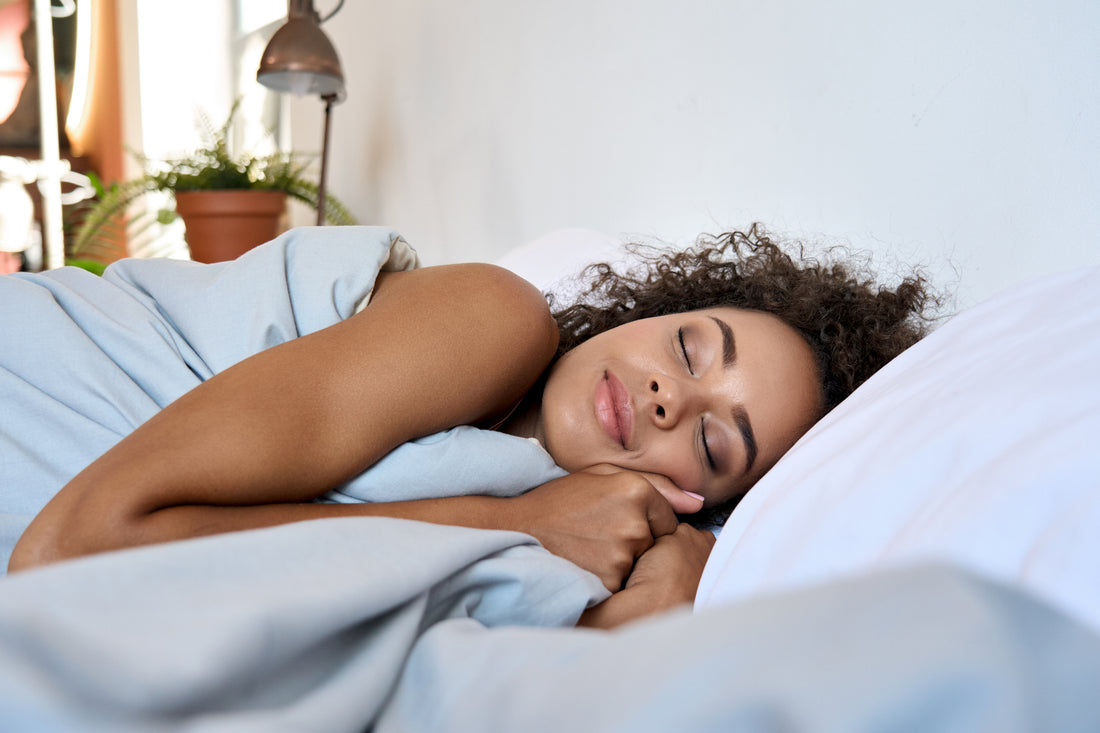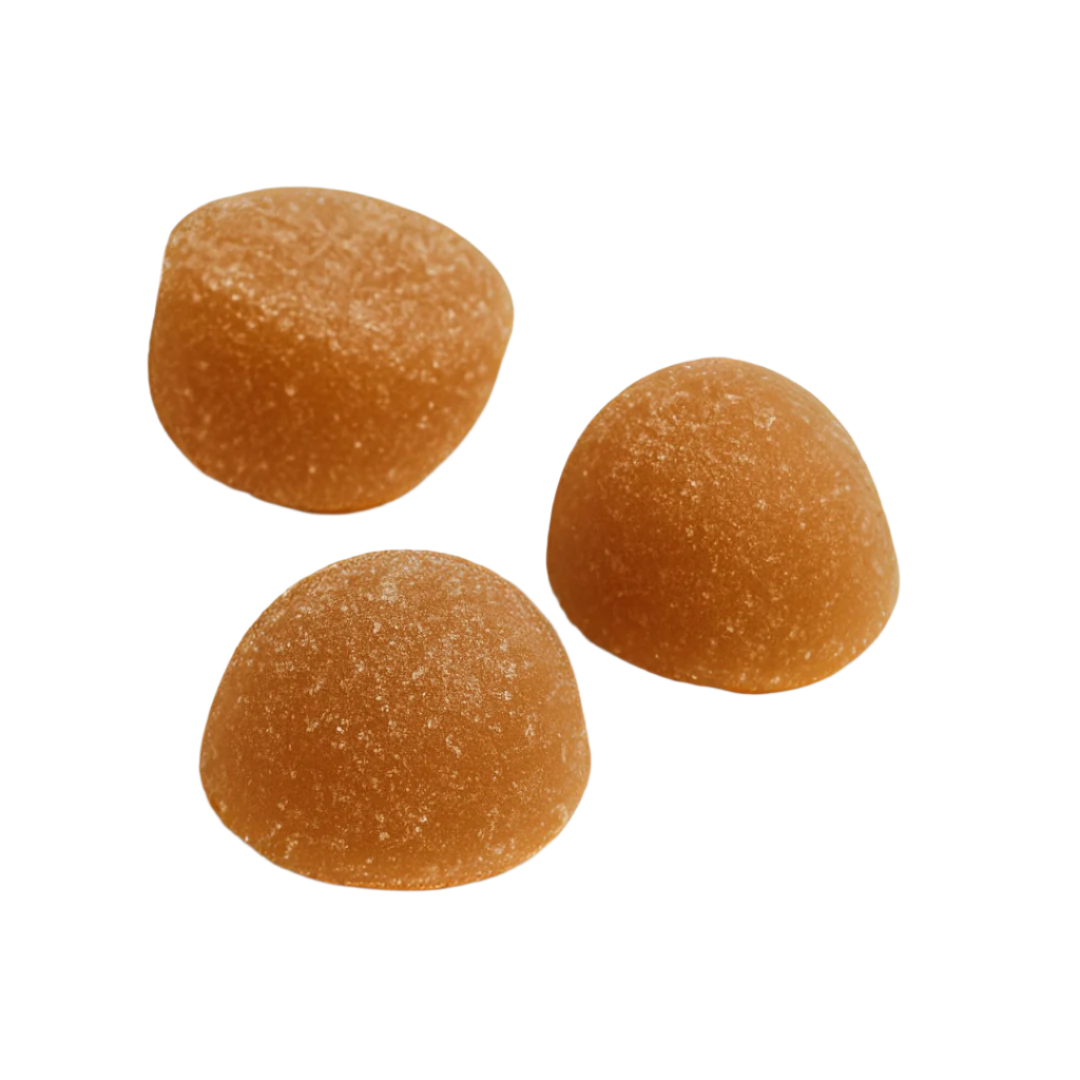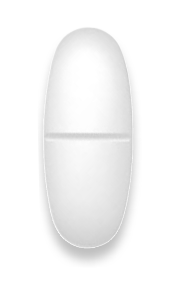Dietary supplements for natural sleep: The ten best natural sleep aids

Many people resort to sleeping pills to solve the problem. However, pharmaceuticals are not suitable for everyone. These drugs can be addictive, cause daytime sleepiness, and lead to headaches and nausea.
What alternatives are there? Various natural sleep aids can help you get a good night's sleep without side effects. These natural alternatives can help you both fall asleep and sleep through the night.
In this article, we'll take a closer look at what natural sleeping pills are and why they're a better alternative to pharmaceuticals. We'll also give you our top ten best natural sleeping pills. Let's get started!
WHAT ARE NATURAL SLEEPING AIDS?
Natural sleep aids support healthy sleep without chemicals or synthetic components. These can be dietary supplements, herbs and other substances traditionally used to support sleep. Natural sleep aids are generally considered safe and effective and have few side effects.
Natural sleep aids can help with a variety of problems that lead to sleep problems, including stress, anxiety, pain, and other illnesses. Natural sleep aids are also good for sleep disorders caused by shift work or jet lag.
WHY YOU SHOULD CHOOSE A NATURAL PRODUCT AS A SLEEPING AID
There are a few key differences between sleep supplements and sleeping pills. The most obvious difference is that natural sleep aids do not contain any synthetic components. This means that they are generally considered safe and effective, with few side effects. Sleeping pills, on the other hand, can sometimes cause daytime sleepiness, headaches, and nausea.
Another important difference is that vitamins and natural supplements are not addictive - unlike most pharmaceuticals. Sleeping pills often contain benzodiazepines or other chemical components that can be addictive.
Another advantage of natural sleep aids is that they can be used when needed, whereas sleeping pills usually need to be taken every night.
HOW DO SLEEPING PILLS WORK?

Natural sleeping pills have a relaxing effect and improve sleep quality. Some dietary supplements contain calming substances such as melatonin or valerian root. Other natural preparations work by relieving anxiety or pain. This makes it easier to fall asleep and sleep through the night.
WHAT ARE THE BEST NATURAL SLEEPING AIDS?
Various natural sleep aids can help you get a good night's sleep. Here are nature's top ten remedies:
1. Melatonin
One of the key players in regulating the sleep-wake cycle is the hormone melatonin. Melatonin is produced naturally by the body. Its levels rise and fall in response to exposure to light. In other words, when it gets dark outside, your body produces melatonin to prepare for sleep.
Melatonin preparations have been established primarily as a sleeping aid for people whose sleep rhythm is disturbed, for example due to jet lag or shift work. Taking melatonin can help restore the natural rhythm and make it easier to fall asleep and sleep through the night.
However, melatonin does not only regulate the sleep-wake cycle. Research has shown that the hormone also plays a role in the following:
- Prolongation of sleep duration
- Improving the quality and quantity of daytime sleep in shift workers
- Improving overall sleep quality in people with sleep disorders
Although more research is needed to understand the full extent of melatonin's health benefits, this hormone is undoubtedly one of the best natural sleep aids currently available.
2. Valerian
Valerian root is a popular herbal remedy for insomnia and anxiety. Valerian is sometimes called “nature’s Valium.”
Valerian root is an herb that has been used for centuries to treat sleep problems. The root is believed to increase levels of gamma-aminobutyric acid (GABA) in the brain. GABA is a neurotransmitter that regulates nerve cell activity and has a calming effect on the nervous system.
Several studies have shown that valerian root can improve sleep quality and reduce the time it takes to fall asleep. However, the results of these studies are inconsistent.
Valerian root also works against anxiety and pain, which can contribute to sleep disorders. And because valerian root is neither addictive nor causes daytime sleepiness, it is considered safe and one of the best sleep aids.
3. Chamomile

Chamomile is a plant in the daisy family. It has long been used in traditional medicine and is one of the best natural sleep aids. Chamomile tea is perhaps the most well-known way to consume this plant. However, supplements to relieve sleep disorders are a better alternative because chamomile tea contains only small amounts of the antioxidant apigenin. Apigenin binds to certain receptors in the brain that are responsible for the transition between sleep and wakefulness.
Chamomile promotes relaxation, reduces anxiety, and has analgesic and anti-inflammatory properties. These properties make the plant one of the most effective sleep aids for people who struggle with insomnia or other sleep disorders caused by stress, anxiety, or pain. In addition, chamomile does not contain caffeine, so a cup of chamomile tea before bed will not affect your night's rest - quite the opposite.
To try chamomile tea for better sleep, drink a cup 30 minutes to an hour before bedtime. You can buy chamomile tea at most grocery stores or online. Make sure the tea does not contain any other ingredients (such as green tea).
4. Magnesium
Magnesium is involved in over 300 biochemical reactions in the human body. This vital mineral supports muscle and nerve function, the regulation of blood sugar levels and the control of blood pressure.
Given how important magnesium is, it's not surprising that many people are magnesium deficient. Those who suffer from chronic stress or anxiety are particularly prone to magnesium deficiency, because when stressed, the body uses magnesium faster than usual.
Magnesium deficiency can lead to various health problems, such as:
- Muscle cramps
- fatigue
- Headache
- Anxiety
- insomnia
Some research suggests that magnesium may reduce the time it takes to fall asleep and improve sleep quality. In another 2011 study, participants who were given a supplement containing 225 mg of magnesium seemed to sleep better than those who took a placebo.
To increase your magnesium intake, you can either take supplements or include plenty of magnesium-rich foods in your diet. These include dark leafy vegetables, nuts and seeds.
Magnesium has also been shown to be effective in treating other sleep disorders such as restless legs syndrome and nighttime anxiety. So by taking magnesium, you're killing several birds with one stone.
5. L-Theanine
This amino acid occurs naturally in tea leaves and its consumption has been shown to promote relaxation and improve sleep quality, and gives green tea its unique taste and smell.
Animal studies suggest that L-theanine is more effective when combined with GABA or magnesium. The diet increases GABA, serotonin and dopamine levels in the brain. These neurotransmitters play an important role in regulating mood, sleep and anxiety.
Taking L-theanine can also help reduce stress and improve sleep quality, making it one of the best natural sleep aids. L-theanine is also effective in treating anxiety and promotes cognitive health.
6. Passionflower

Passionflower is a climbing plant used as an herbal remedy. It can be used to treat anxiety, insomnia and other ailments and has calming properties. The leaves, flowers and stems of the plant are used to make passionflower tea, supplements and extracts. The passionflower's effects are based on the fact that it increases GABA levels in the brain.
Although animal studies suggest that passionflower may positively affect sleep, there is little research on its effects in humans. Some studies suggest that passionflower may improve sleep quality. However, other studies have found no significant effect of passionflower on objective sleep measures (such as sleep efficiency or time spent in deep sleep).
The reason for the mixed study results is unknown. However, the form of consumption may be an important factor. Passionflower supplements are usually made from dried herbs. In contrast, passionflower tea is usually brewed from fresh or dried leaves and flowers. Another possibility is that individual differences in response to passionflower explain the conflicting results in human trials.
If you want to try passionflower as a sleep aid, it's important to choose a high-quality supplement. Look for a product that has been tested by an independent laboratory for purity and potency. Passionflower is generally considered safe when taken in small doses, but it can cause side effects such as headaches, dizziness, and gastrointestinal discomfort.
7. Glycine
Glycine is an amino acid found in many foods, including meat, fish, eggs, and dairy products. It can also be taken in supplement form. Glycine has a number of health benefits, including improving sleep quality.
Glycine lowers body temperature, which signals to the body that it is time to sleep. Studies have shown that people who take glycine before bed feel less tired the next day.
A 2007 study found that glycine can improve sleep quality in people with insomnia. The study measured participants' brain activity, heart rate, and breathing during sleep. The results showed better measures of sleep quality in the group of subjects who took 3g of glycine before bed (compared to the placebo group). In addition, the glycerin supplements helped participants fall asleep faster.
8. Lavender
Found on almost every continent, lavender is another classic in traditional medicine. The plant's purple flowers, leaves and stems are used to make lavender oil, which is used in many different products such as soaps, lotions and candles.
The calming scent of lavender is believed to promote sleep. Several studies suggest that the scent of lavender oil just before bedtime is enough to improve sleep quality in people with mild insomnia. Lavender also has analgesic, anti-inflammatory and antioxidant properties.
While lavender aromatherapy is generally considered safe, taking lavender oil orally has been linked to nausea, belching, and diarrhea in some people. Essential oils are mostly intended for aromatherapy, not ingestion. Additionally, few studies have looked at the effects of lavender on sleep, so more research needs to be done before firm conclusions can be drawn.
Despite these limitations, lavender's pleasant scent and good tolerability make it a suitable natural remedy for sleep problems - especially in aromatherapy. If you want to try lavender for better sleep, it's best to get an essential oil diffuser to enjoy its calming scent.
9. Lemon balm

Lemon balm is a perennial herb in the mint family that is native to Europe, North Africa, and Asia. The leaves of this plant have a lemon-like scent and can be used to make tea. There are also dietary supplements containing lemon balm.
Lemon balm has a calming, anti-anxiety effect that can help you relax and fall asleep more easily. Lemon balm is also said to relieve cramps and improve sleep quality. Studies have shown that drinking lemon balm tea before bed can reduce the time it takes to fall asleep and increase total sleep time.
If you struggle with insomnia or other sleep problems, lemon balm tea is a safe, natural remedy that is definitely worth a try.
10. Hops
Although hops are primarily known as an ingredient in beer, the plant is an old home remedy for sleep disorders. The versatile plant contains a chemical component called lupulin, which has a calming effect. You can buy nutritional supplements and teas made from hops online or in drugstores.
Several scientific studies suggest that hops have a calming effect. For example, researchers found that women who drank hops slept better and suffered less anxiety. Another study linked the consumption of non-alcoholic beer to improved sleep quality in university students.
In addition to consuming hops in beer, the herb can also be brewed as a tea. To do this, add fresh or dried hops to hot water and let it steep for several hours before drinking.
If you want to try hops as a sleep aid, buy dried hops, hop tea, or hop supplements from reputable suppliers. Hops are generally considered safe when taken orally in small doses. However, hops can cause side effects such as headaches, nausea, and dizziness, so it's best to start with a low dose and gradually increase it if necessary.
WHAT IF I HAVE TROUBLE WAKENING?
Some people have trouble waking up instead of difficulty falling asleep. People who suffer from sleep inertia or sleep apnea often have great difficulty getting up in the morning, feeling tired and groggy. These conditions can be just as debilitating as insomnia, affecting productivity, mental health and quality of life, among other things.
Natural remedies can also help with these complaints.
One such natural remedy is B・SYNC ON. B・SYNC ON is all-natural and helps you wake up feeling refreshed. Many over-the-counter and prescription sleep aids leave you feeling sleepy until the early hours of the morning. With B・SYNC ON, however, you wake up feeling sleepy. B・SYNC ON is a clinically tested, natural supplement with three ingredients that are proven to help you wake up feeling refreshed and energized.
- Caffeine : Caffeine is a natural stimulant found in coffee, tea and chocolate. It works by preventing the sleep-inducing chemical adenosine from binding to its receptors in the brain, making you feel alert and awake.
- B vitamins: B vitamins are important for energy production and metabolism. They help convert food into fuel that the body can use for energy.
- Zinc: Zinc is a mineral that plays a role in many biochemical reactions in the body. The mineral is necessary for the proper functioning of over 300 enzymes. Zinc is also involved in the regulation of sleep and wakefulness.
B・SYNC ON capsules release their active ingredients after seven hours. This technology allows you to take the capsules before going to bed and wake up full of energy the next morning. To learn more about how B・SYNC ON works, please take a look around our website.
CONCLUSION
Sleep is fundamental to our health and well-being. If you have trouble falling asleep or staying asleep, several natural sleep aids can provide relief. The best natural sleep aids include chamomile, valerian and hops. If you are unsure about which sleep aid is best for you, speak to a healthcare professional.
FAQ
How should I arrange my bedroom to sleep better?
Make sure your bedroom is quiet, cool and completely dark. Keep all electronic devices out of your bedroom and choose a high-quality mattress that suits your body type.
What are the best sleep aids?
The most popular sleep aids include chamomile, valerian and hops, as well as magnesium and melatonin supplements. However, there is no one-size-fits-all answer to the question of which is the best sleep aid. It depends on your individual sleep needs.
What are the side effects of sleeping pills?
The side effects of sleeping pills depend on the type and dosage of the sleeping pill. Some sleeping pills can cause drowsiness, dizziness, headaches or upset stomach.
How long can I take sleeping pills?
Most sleeping pills are designed for short-term use (up to four weeks). If you plan to take a sleeping pill for longer than four weeks, talk to a healthcare professional.













